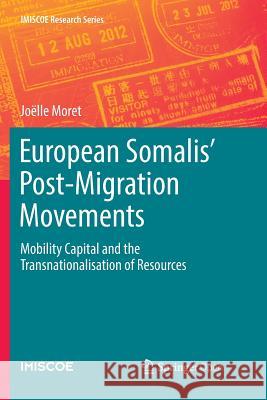European Somalis' Post-Migration Movements: Mobility Capital and the Transnationalisation of Resources » książka
topmenu
European Somalis' Post-Migration Movements: Mobility Capital and the Transnationalisation of Resources
ISBN-13: 9783030070793 / Angielski / Miękka / 2018 / 213 str.
European Somalis' Post-Migration Movements: Mobility Capital and the Transnationalisation of Resources
ISBN-13: 9783030070793 / Angielski / Miękka / 2018 / 213 str.
cena 201,24
(netto: 191,66 VAT: 5%)
Najniższa cena z 30 dni: 192,74
(netto: 191,66 VAT: 5%)
Najniższa cena z 30 dni: 192,74
Termin realizacji zamówienia:
ok. 16-18 dni roboczych.
ok. 16-18 dni roboczych.
Darmowa dostawa!
Kategorie:
Kategorie BISAC:
Wydawca:
Springer
Seria wydawnicza:
Język:
Angielski
ISBN-13:
9783030070793
Rok wydania:
2018
Wydanie:
Softcover Repri
Numer serii:
000331418
Ilość stron:
213
Waga:
0.32 kg
Wymiary:
23.39 x 15.6 x 1.19
Oprawa:
Miękka
Wolumenów:
01
Dodatkowe informacje:
Wydanie ilustrowane











